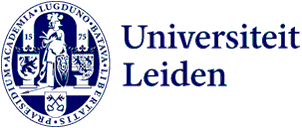
Aya Ezawa honoured for volunteer work with Japanese-Indonesian war children: 'Recognition of the importance of reconciliation'
University lecturer Aya Ezawa has received a Certificate of Commendation from the Japanese Embassy in the Netherlands for her efforts to promote reconciliation between the Netherlands and Japan, in particular by supporting Japanese-Indonesian war children. As a member of the Foundation for War Victims in the East, she has contributed to searches for biological fathers and meetings with families in Japan.
Ezawa first met Japanese-Indonesian descendants in 2008, when she gave a lecture to Japanese-Dutch families about their children's identity. The audience included not only the young families she had expected, but also pensioners who had been born to an Indonesian mother and a Japanese father between 1944 and 1946, during the Japanese occupation of the Dutch East Indies. Their questions about identity and ancestry were of a completely different order from those of young children in the 21st century.
Difficult position
The mothers of these war children were often so-called 'buitenkampers': people with an Indonesian background who were not imprisoned in an internment camp. The Japanese fathers often had jobs that brought them into contact with the general population and therefore also with these Indo women, for example because they worked in the transport or administrative sector. 'Sometimes these contacts led to romantic relationships,' says Ezawa. 'There are known cases of couples who left for Japan together after the war.' The children who remained in the Dutch East Indies community with their mothers after the Japanese surrender were in a difficult position, given the pain and loss their community had suffered during the Japanese occupation. Ezawa: ‘For decades, most of these war children were unaware of their Japanese ancestry and grew up with a cruel image of the Japanese. For many, it was therefore shocking to learn that the father they had grown up with was a stepfather and that their biological father was Japanese.’
Guidance in the search
Ezawa decided to conduct research into these Japanese-Indonesian descendants in order to better understand and highlight their experiences. In addition, a group of Japanese women in the Netherlands, including Ezawa, founded the Foundation for War Victims in the East in 2016. ‘The foundation had two objectives,’ says Ezawa. ‘On the one hand, Japan kept extremely detailed records of civilians and soldiers who ended up in Dutch East Indies internment camps. The internment cards, containing information such as place of residence, illness and date of death, are available in the National Archives, but because they were in Japanese, the information was not accessible to relatives. The foundation provided translations so that people could find out what had happened to their family members.'
The foundation's second objective was to assist in the search for Japanese fathers. Ezawa: 'There are many questions in the minds of war children: who was he? Do I look like my father? Did he think about me? Given the negative image of Japan during the war, there is a strong need to know more about Japan and the Japanese people, and to be able to tell a different narrative about the war and Japanese identity.' Ultimately, the foundation was able to trace the family in six cases. 'The meetings with family members were particularly emotional,' says Ezawa. ‘It was not only the end of a long search, but also a recognition: that being Japanese is not ‘wrong’, and that there are family members in Japan who respect and appreciate you.’
Recognition
The certificate from the Japanese embassy recognises what happened and the importance of activities that contribute to processing and reconciliation, Ezawa believes. ‘War traumas can still affect family life and the community even after two generations. Through my research, I try to record and make visible the experiences of war children, and to provide insight into how a different narrative and recognition can contribute positively to coming to terms with the war past. This will remain an important issue for future generations as well.’
